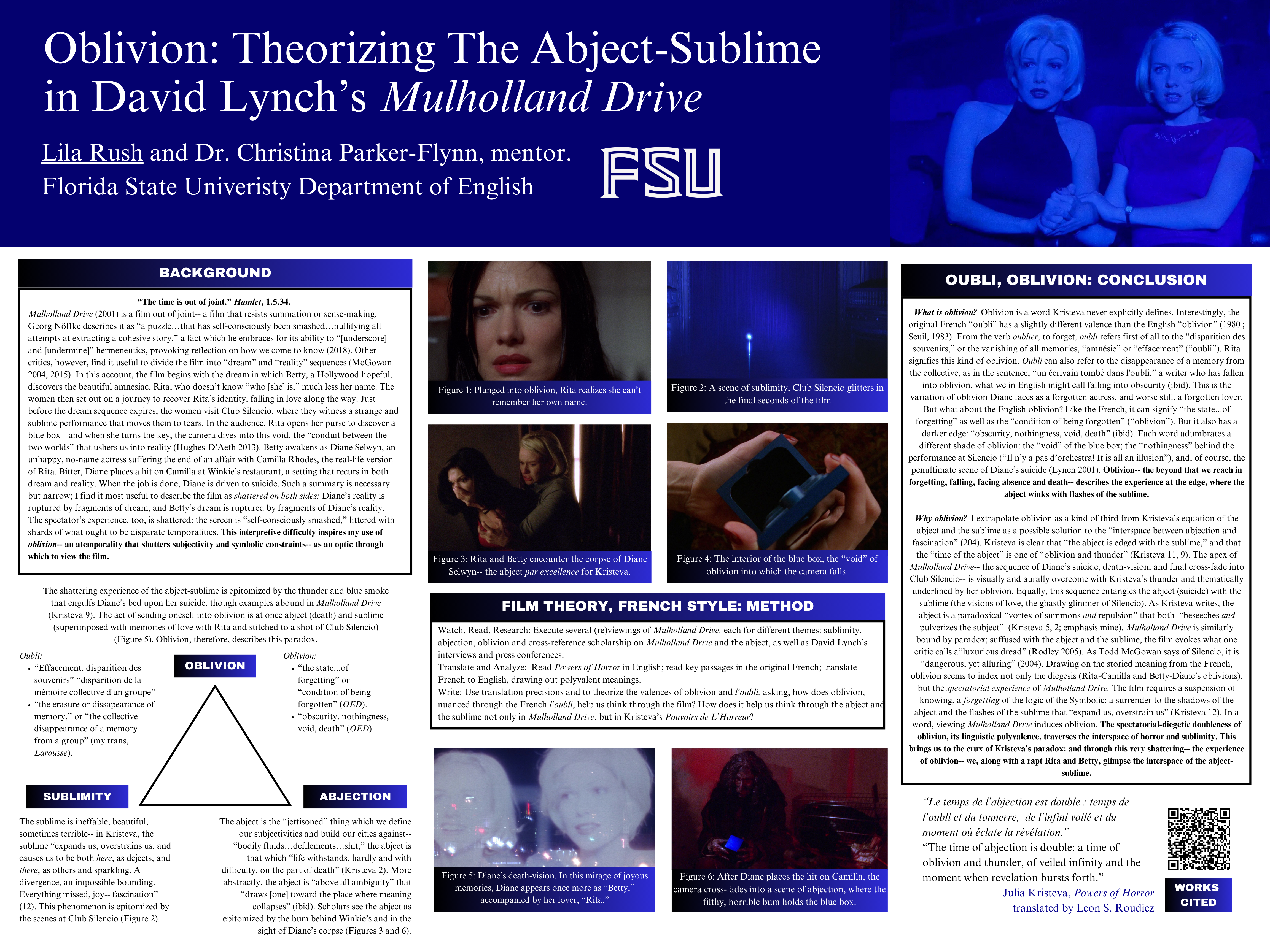Research Symposium
25th annual Undergraduate Research Symposium, April 1, 2025
Lila Rush Poster Session 2: 10:45 am - 11:45 am/ Poster #185

BIO
Lila Rush is a senior Literature, Media, and Culture major. Her research interests include critical theory, continental philosophy, and cultural studies. In 2024, she won the Cody Harris Allen Award for Outstanding Undergraduate Writing for an original research project on the Victorian poet A.A. Procter. Her honors thesis engages queer theory and psychoanalysis to theorize the femme lesbian subject in Virginia Woolf’s 1928 novel, Orlando. She is a teacher at the Alliance Française de Tallahassee and a DJ at WVFS Tallahassee 89.7FM. Upon graduation, she is relocating to Europe to teach.
Oblivion: Theorizing The Abject-Sublime in David Lynch’s Mulholland Drive
Authors: Lila Rush, Dr. Christina Parker-FlynnStudent Major: English Literature, Media, and Culture
Mentor: Dr. Christina Parker-Flynn
Mentor's Department: The Department of English Mentor's College: The College of Arts & Sciences Co-Presenters:
Abstract
David Lynch’s 2001 Mulholland Drive has been variously described as infuriating, dazzling, unsettling, strange-- “compelling, but intentionally inscrutable” (McCarthy 2001). These two ideas-- compelling, inscrutable-- ought not to be separated by contrast, but connected through cause and effect: it is precisely because of its inscrutability that we are compelled to Mulholland Drive, drawn down to “the place where meaning collapses” (Kristeva 2). This place, according to the psychoanalyst Julia Kristeva, is the abject-- the wasteland that lies beyond the perimeters of cultural acceptability, the defilement, repugnance, and rot that “life withstands, hardly and with difficulty, on the part of death” (Kristeva 2). Even so, the inscription to Kristeva’s “Powers of Horror” alludes to the paradoxical lure of the abject: “no Beast is there without glimmer of infinity” (1). Like a glimmer of beauty in the eyes of a beast (or a Lynchian bum, as it were), the abject compels even as it repels; it is, as Kristeva puts it, “edged with the sublime” (12). The aim of this project, then, is to theorize this spiral of abjection and sublimity through Mulholland Drive. Drawing on Kristeva’s theory in the original French, the project uses the linguistic polyvalence of "oubli," or "oblivion," to analyze the shattering experience of the abject-sublime on a diegetic and spectatorial level. Through this optic of oblivion-- which can mean both forgetting and being forgotten, but also “obscurity, nothingness, void, death”-- the project peers down this “very mysterious road" (“Oblivion”; Lynch 2005).
Keywords: Film Theory, David Lynch, Julia Kristeva, Psychoanalysis, Horror, Critical Theory


